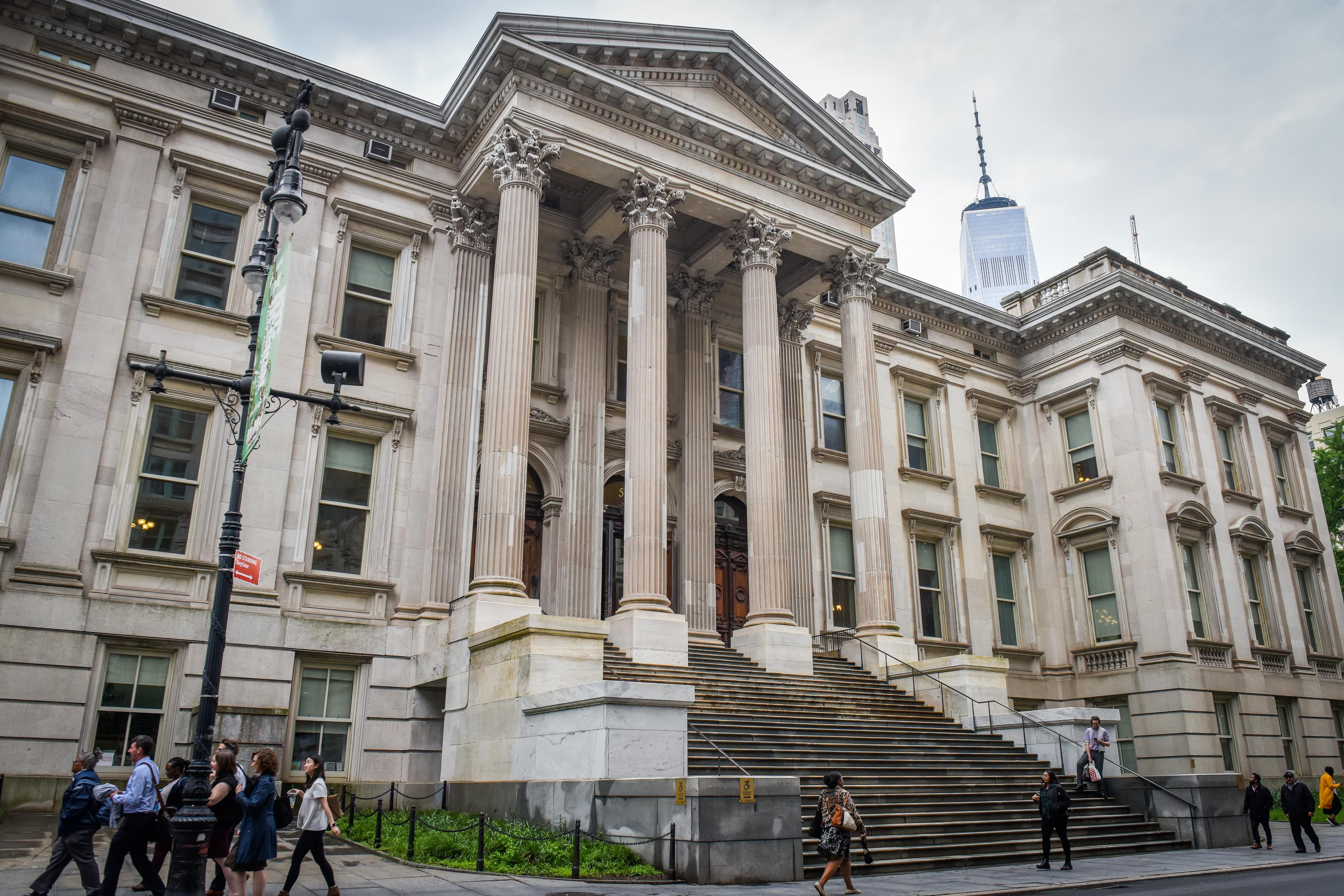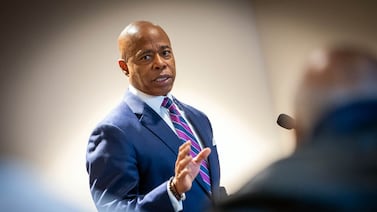State officials have pulled a controversial proposal that would have allowed non-lawyers to oversee special education complaints in New York City.
Monday’s change to the proposal — originally floated in January as a way to ease a massive backlog of cases — comes after special education advocates and attorneys serving low-income families argued for months that only those with legal training should oversee these complicated cases.
Had the proposal passed, New York would have become the ninth state to allow people without law degrees to adjudicate cases in which families argue that their children are not receiving needed special education services.
“We especially didn’t support it because it was targeted just at New York City, so the pulling of the proposal responds to the real volume of comments that were heard from advocates in this community,” said Rebecca Shore, director of litigation at Advocates For Children New York.
The proposal was part of a series of potential regulatory changes meant to speed up the resolution of New York City’s special education cases. During the 2019-2020 school year, the city fielded 10,797 complaints, accounting for 96% of complaints logged across New York, according to the state. Cases are required by law to be resolved within 75 days, but as of last school year, cases were resolved in 259 days on average in New York City.
As of this spring, just 67 lawyers were responsible for all of them. In one instance, a single impartial hearing officer has been assigned more than 1,700 cases. An additional 34 officers were trained this summer, according to a spokesperson for the state education department.
Despite the staffing crunch, legal organizations and advocates worried that permitting non-lawyers to resolve these cases could lead to errors that would invite lengthy appeals. Such delays, they argued, would mean low-income students would go even longer without the therapies or private school tuition they need.
The city has failed to comply with federal special education laws for more than 13 years, with the state failing to bring the city into compliance. The state is still mulling several other proposals to address the city’s backlog, such as allowing attorneys licensed outside of New York to become hearing officers and permitting hearings to happen via teleconference. (Because of the coronavirus pandemic, these hearings have already been happening virtually.)
“We do want to take a look at the whole process and support New York City in hopefully getting to a better place when it comes to due process, impartial hearing, and the entire procedure to support our students with special needs,” Interim Commissioner Betty Rosa told the Board of Regents on Monday during its monthly meeting.
A more sensible solution would be for the city to opt more frequently for mediations and settlements to avoid the lengthy hearing process, said Cara Chambers, director of the Legal Aid Society’s Education Advocacy Project. This year, the state education department is requiring the city, which is on a state compliance plan, to increase mediations by 20%.
Another would be to create more physical spaces for hearings. The lack of conference rooms at the city’s impartial hearing office often means people wait hours before a hearing space is available, Chambers said, who acknowledged that the city has made “modest improvements” in this regard, adding more rooms and installing soundproofing.
Danielle Filson, a spokesperson for New York City schools, said the city has recently hired liaisons to increase the use of mediations if parents choose that option, and pointed to upgrades at the impartial hearing office. But the city is urging for more help from the state, she said.
“There are currently 47 hearing officers with fewer than 20 cases each, and we continue to ask the State to hire more hearing officers and implement a minimum caseload requirement so that our families can be better served,” Filson wrote in a statement.
A spokesperson for the state education department noted the city’s efforts, including increasing mediation, adding four rooms and more staff to its impartial hearing office, and creating a new system meant to prevent hearing officers from being assigned to cases they are not available to adjudicate. But state officials also believe the city should prevent some issues from ever going to a hearing. One example of such a case would be an independent educational evaluation, where a parent is seeking a private evaluation of their child.
Nelson Mar, an attorney with Bronx Legal Services, said he’s noticed a slight reduction in delays, attributing it to a change in how the city handles pendency, or “stay-put,” requests. Such a request allows parents to preserve their child’s special education services while they advocate for changes to those services. In New York City, such requests prompted their own hearing, contributing to the backlog, Mar said. In June the city began allowing parents to use a form for their request in lieu of a hearing, so long as the city has no disputes.
“The delays have ticked down just a bit, but they still continue, and we need to work on better solutions to this,” Mar said.








